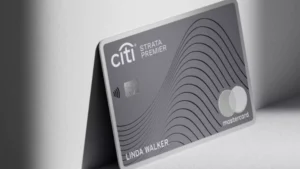Ever wondered what a missed credit card payment really costs? As a finance expert, I’ve seen how important one payment can be. Missing a payment, even by a day, can lead to big problems.
The Consumer Financial Protection Bureau (CFPB) says payments are late if they arrive after 5 p.m. on the due date. This can lead to extra fees and higher interest rates. These rates can be much higher than what you normally pay.
Missing a payment can also hurt your credit score. A single mistake can drop your score by 100 points or more. This can change your financial future a lot.
The CFPB says late fees can be as high as $41. These fees can grow if payments are late for 60 days or more. This can make your interest rates even higher.
Keeping your credit score healthy is important. It’s not just about fixing the immediate problem. It’s about understanding how it affects your future.
In the next parts, I’ll explain the effects of missing a payment. I’ll talk about grace periods, how to negotiate, and ways to avoid problems. These tips can help you stay financially stable.
Immediate Consequences of a Missed Credit Card Payment
Missing a credit card payment might seem small. But it starts a chain of events that can deeply affect your money health. Let’s see what happens when you’re late with a payment.
Late Payment Fees and Increased Interest Rates
A late fee can cost up to $40. This is a big price for being late. Plus, your interest rates might jump up.
Credit card companies often raise your APR to a penalty rate. This can be as high as 29.99%. This change can make you pay a lot more, if you keep a balance on your card.
Potential Loss of Introductory APR Offers
If you had a special 0% interest rate, missing a payment can end it. Credit card companies can take away these offers if you’re late. This can make it hard to manage your money.
Risk to Future Credit Availability
Missing a payment can hurt your future money chances. Lenders see late payments as a risk. This might make it hard to get loans or good credit terms later.
Payment history is key to your credit score. It can affect up to 35% of your score. Understanding these effects shows why paying on time is so important.
It saves you money and keeps your credit score safe. This way, you can keep finding good financial opportunities.
How a Missed Credit Card Payment Affects Your Credit Score
Keeping an eye on your finances is key. Knowing how a missed credit card payment affects your score is important. We’ll look at how it can change your score, based on different factors.
The Role of Payment History in Your Credit Score
Payment history is a big part of your credit report, making up about 35% of your FICO Score. This shows how important it is to pay on time. A payment that’s 30 days late can lower your score by up to 100 points, depending on your current score.
The Long-Term Impact on Credit Reports
A single late payment can stay on your report for up to seven years. This can affect your chances for credit in the future. Making all payments on time is key. It helps balance out any past late payments, but it takes time.
The effect of late payments gets smaller over time. But, the record stays on your report for years, seen by credit bureaus and lenders.
Factors Determining the Severity of the Impact
- Frequency and Recency: Late payments that happen often or recently hurt more.
- Severity: Payments that are really late, like more than 60 days, are worse than those that are 30 days late.
- Overall Credit Health: People with higher scores see a bigger drop after a late payment than those with lower scores.
In short, keeping up with payments is vital for your credit score. Every on-time payment helps improve your creditworthiness. Being aware and managing your credit well can lessen the damage from missed payments.
Reporting Lateness to Credit Bureaus
Missing a payment can hurt your wallet and credit score. Credit card companies wait 30 days before reporting a missed payment. This gives you time to fix any missed payments before they show up on your credit report.
Once a late credit card payment is reported, it stays on your report for up to seven years. This can affect your credit scores for a long time.
It’s key to know how credit reporting works. Creditors send updates to credit bureaus every month. If you’re 30 days late, your score can drop a lot, even if you had good credit before.
Here’s what happens with late payments:
- 30 days late: Your score could drop a lot, if you had good credit before.
- 60 days late: This can hurt your score more than being 30 days late.
- 90 days late: This shows you’re having trouble paying, which means more risk for lenders.
To avoid big drops in your score, try to make at least the minimum payment before you’re 30 days late. Even a partial payment can help, but you must meet the minimum payment to avoid being reported as late.
Learning about hardship programs from lenders can also help when money is tight. These programs might give you a break when you need it most.
If you’re having trouble paying, talk to your creditor before you’re 30 days late. They might work out a plan that keeps your payment on track and avoids late fees.
Knowing about these deadlines and acting fast when you miss a payment can protect your credit score. This helps avoid long-term financial problems on your credit report.
Credit Card Issuers’ Policies on Missed Payments
Knowing how credit card companies handle missed payments can ease your worries. Their policies differ, but some trends are clear. These trends shape how they manage missed payments.
Grace Periods Offered by Credit Card Companies
A “grace period” is extra time to pay after the due date without a late fee. Most credit cards offer this grace period. It’s a key time to avoid extra costs.
Soon, the Consumer Financial Protection Bureau will make grace periods more standard. This could give you more time before a late fee is charged. It helps if you’re facing a short-term money problem.
Negotiation Options with Credit Card Issuers
If you miss a payment, talk to your credit card company. Many will work with you, even for a one-time mistake. They might waive the late fee, set up automatic payments, or change your due date.
With new rules coming, late fees might go down. Setting up automatic payments can also help. It keeps your payments on track and protects your credit score.
While rules vary, most credit card companies are getting more flexible. Knowing your issuer’s rules can save you money. It also helps keep your financial health strong.
Strategies to Manage a Missed Credit Card Payment
Realizing you’ve missed a credit card payment can be worrying. But, there are ways to handle it and avoid bad effects. Here are some steps you can take:
- Make at Least the Minimum Payment: If you missed your payment, try to pay the minimum as soon as you can. This can stop the missed payment from hurting your credit score if it’s less than 30 days late.
- Seek Late Fee Forgiveness: If missing a payment was a one-time mistake, you might get your late fee waived. Just call your credit card company and explain. They might forgive the fee if you’ve always paid on time before.
- Communicate with Your Credit Card Issuer: Talk to your credit card company about any money troubles you’re facing. They might offer special programs to help. These could lower your interest rates or monthly payments, or even stop fees for a while.
- Utilize Autopay: To avoid missing payments in the future, set up autopay for the minimum payment. This way, your payments will always be on time. It helps a lot in keeping you out of credit card debt.
Using these strategies can help you deal with credit card late payments well. It also keeps your finances stable and protects your credit score. Talking to your credit card company and using autopay are smart ways to manage your money better and avoid debt.
How to Prevent Future Missed Credit Card Payments
To avoid late fees, it’s key to manage your credit card payments well. A few simple steps can help keep your finances healthy and your credit score up.
Setting Up Automatic Payments
Automatic payments are a smart way to pay on time. They make sure your payment is taken out of your account on the due date. This way, you avoid late fees and can even get lower interest rates from some lenders.
It’s great because it keeps you in good standing with credit bureaus. You never miss a payment deadline.
Adjusting Payment Due Dates
Changing your payment due dates can also help. If your due dates don’t match your paydays, you can ask your credit card company to change them. This makes it easier to manage your money without stress.
It helps you avoid extra fees and interest charges.
Utilizing Payment Reminders and Alerts
Payment reminders are another useful tool. Many banks offer these through their websites or apps. You can get alerts by email or text.
Also, setting reminders on your phone or computer can help. It keeps you on track with your payments and prevents extra fees.
Using automatic payments, adjusting due dates, and reminders can help you manage your credit card payments well. This keeps your finances stable.
Options for Getting Back on Track After a Missed Payment
Mistakes happen, and missing a credit card payment is no exception. If you’ve slipped this month, don’t worry. I’m here to help you figure out what steps to take next.
Making Immediate Payment to Reduce Penalties
First and foremost, make an immediate payment. This action can reduce or even prevent additional late fees. It also minimizes the interest accrued on your outstanding credit card bill.
Many credit card issuers may not report a missed payment to credit bureaus if it’s rectified within 30 days. Prompt payment not only helps avoid a dip in your credit score. It also shows responsible behavior to your card issuer.
Contacting Credit Card Company for Assistance
If you’re finding it hard to manage your current financial situation, reaching out for credit card company assistance can prove beneficial. Most issuers offer support programs that could include waiving certain fees, restructuring your debt, or even deferring payments for a short period.
It’s essential to communicate openly and as early as possible. This maximizes the chances of favorable terms.
Recovering from a missed payment is doable, and with the right strategies, you can get back on track smoothly. Remember, it’s not just about handling the immediate aftereffects like fees and penalties. It’s also about longer-term financial health.
Continuous monitoring and adjustment of your spending habits will be key as you move forward. To further aid your recovery, consider utilizing tools and services like automated payments and budget tracking. This not only helps ensure timely payments but also keeps your credit card spending in check.
Getting back on track is perfectly achievable, and with these guidelines, you’ll be on your way to restoring both your balance and your peace of mind.
The ‘Missed Credit Card Payment’ and Your Financial Habits
Managing our money well means knowing about credit card debt. Missing a payment on a credit card is more than just a fee. It shows how we handle money, which is important.
Making credit card payments on time helps avoid problems. It also shows you’re responsible. This can improve your credit score.
- Building Credit Score: Your payment history is key to your credit score. It can affect up to 35% of your FICO score.
- Avoiding Penalty APRs: Missing two payments can lead to a high penalty APR. This can make paying back harder.
- Maintaining Low Credit Utilization: Use less than 30% of your credit. Paying on time helps keep your balances low.
To avoid late payment risks and keep your credit in good shape, try these tips:
- Use automatic payments to ensure bills are paid on time. Make sure you have enough money in your account.
- Check your credit score and report often. This helps you catch any issues or changes quickly.
- Make a budget that focuses on essential payments. Cut down on things you don’t need to spend money on.
How we handle credit card payments shapes our financial habits. Paying on time keeps your credit score healthy. It also builds a strong financial base. Being proactive with credit card payments helps avoid penalties and boosts your financial health.
Conclusion
We’ve talked about missed credit card payments and how they can hurt your credit scores. If we don’t pay on time, we face extra fees and higher interest. Our credit scores can drop a lot.
Worse, these mistakes can stay on our credit report for up to seven years. But, most lenders wait 30 days before reporting a late payment. This gives us a chance to fix it before it gets worse.
Life can be unpredictable, but we can avoid late payments. By setting up automatic payments and using payment reminders, we can stay on track. If we make a mistake, the Credit Card Accountability Responsibility and Disclosure Act of 2009 helps. It makes sure creditors review interest rates often.
Making regular payments is key to good credit. It keeps your credit utilization ratio healthy and protects your financial health. By watching our credit card activity closely, we can avoid missed payments. This keeps our finances on the right path, showing our responsibility.







